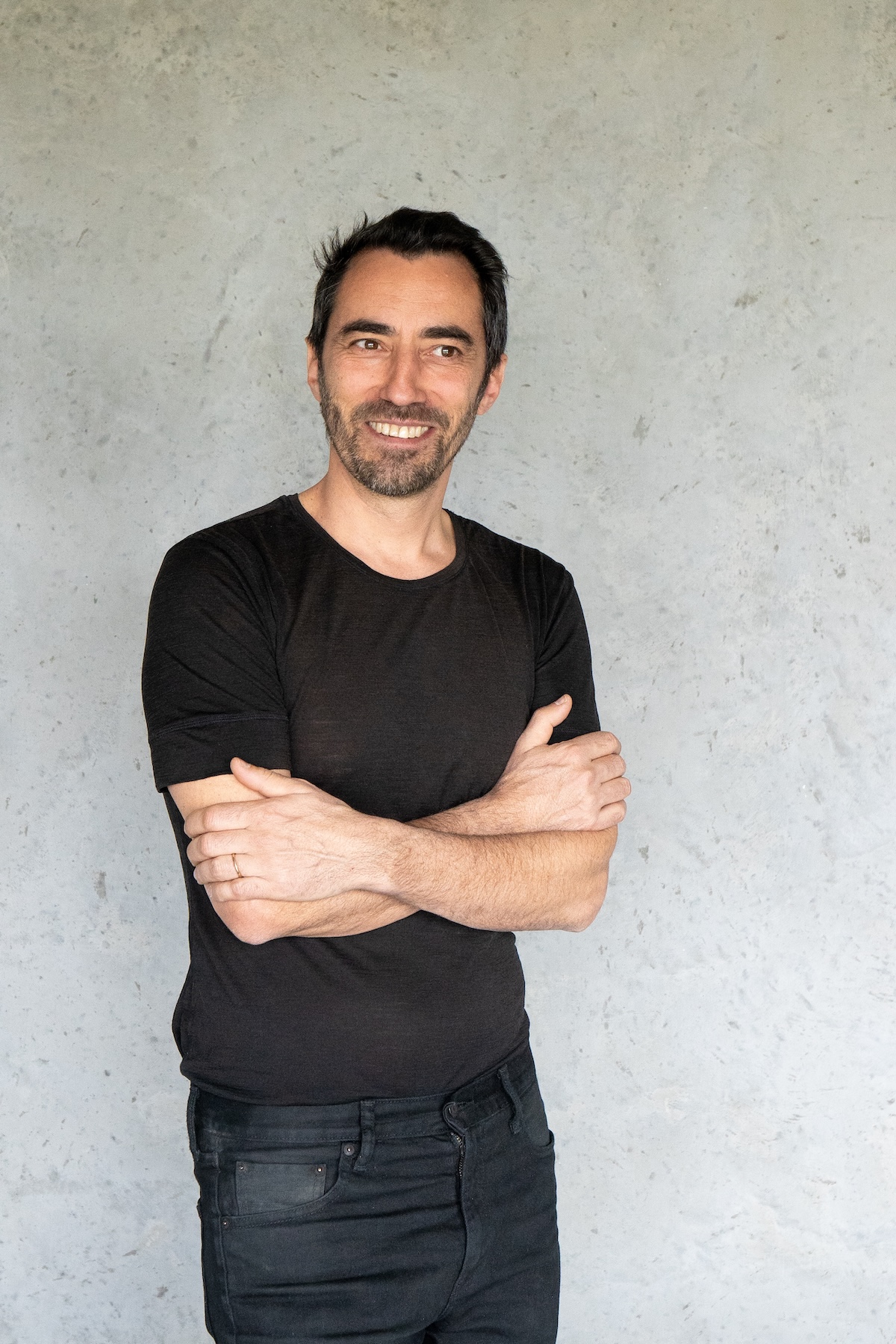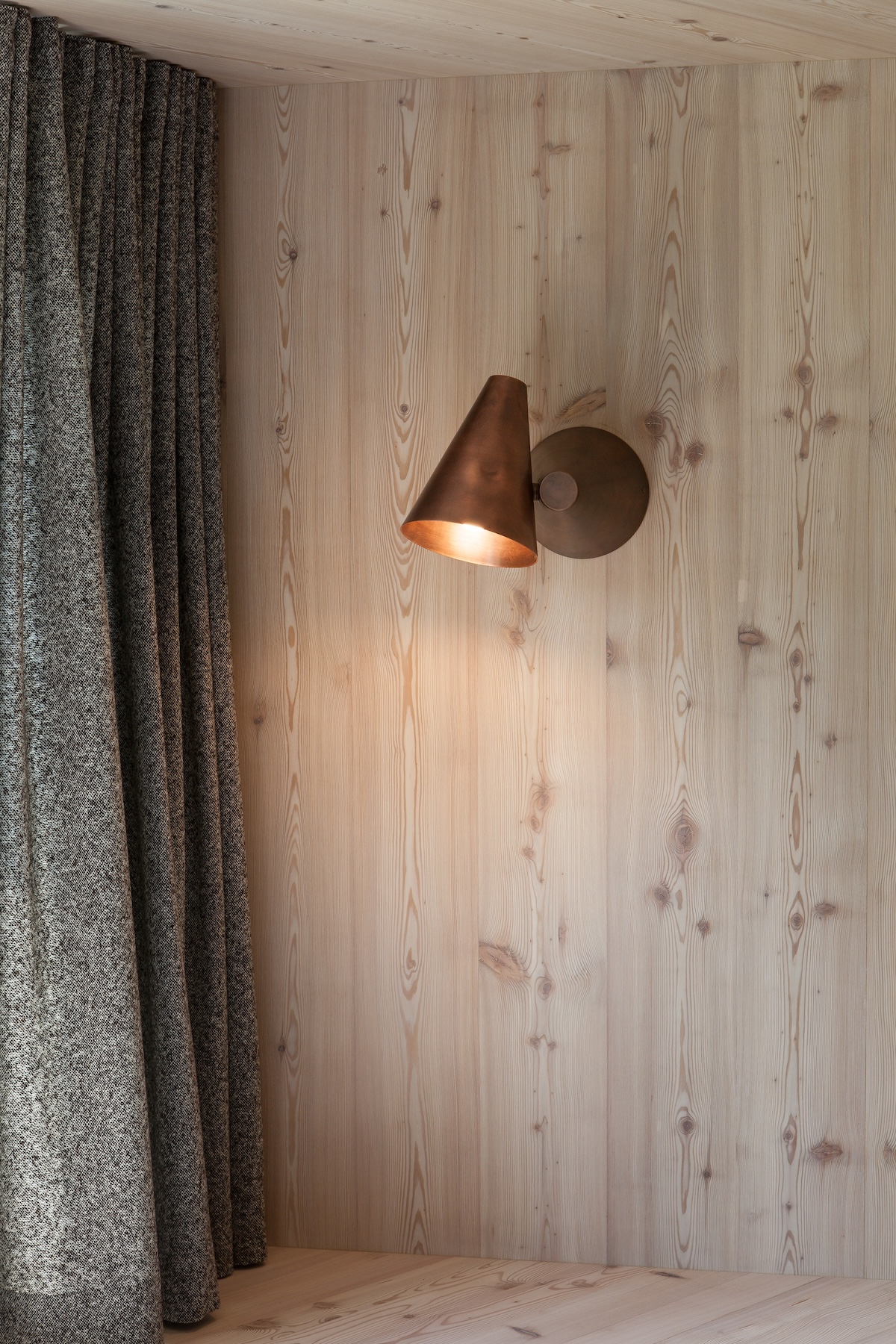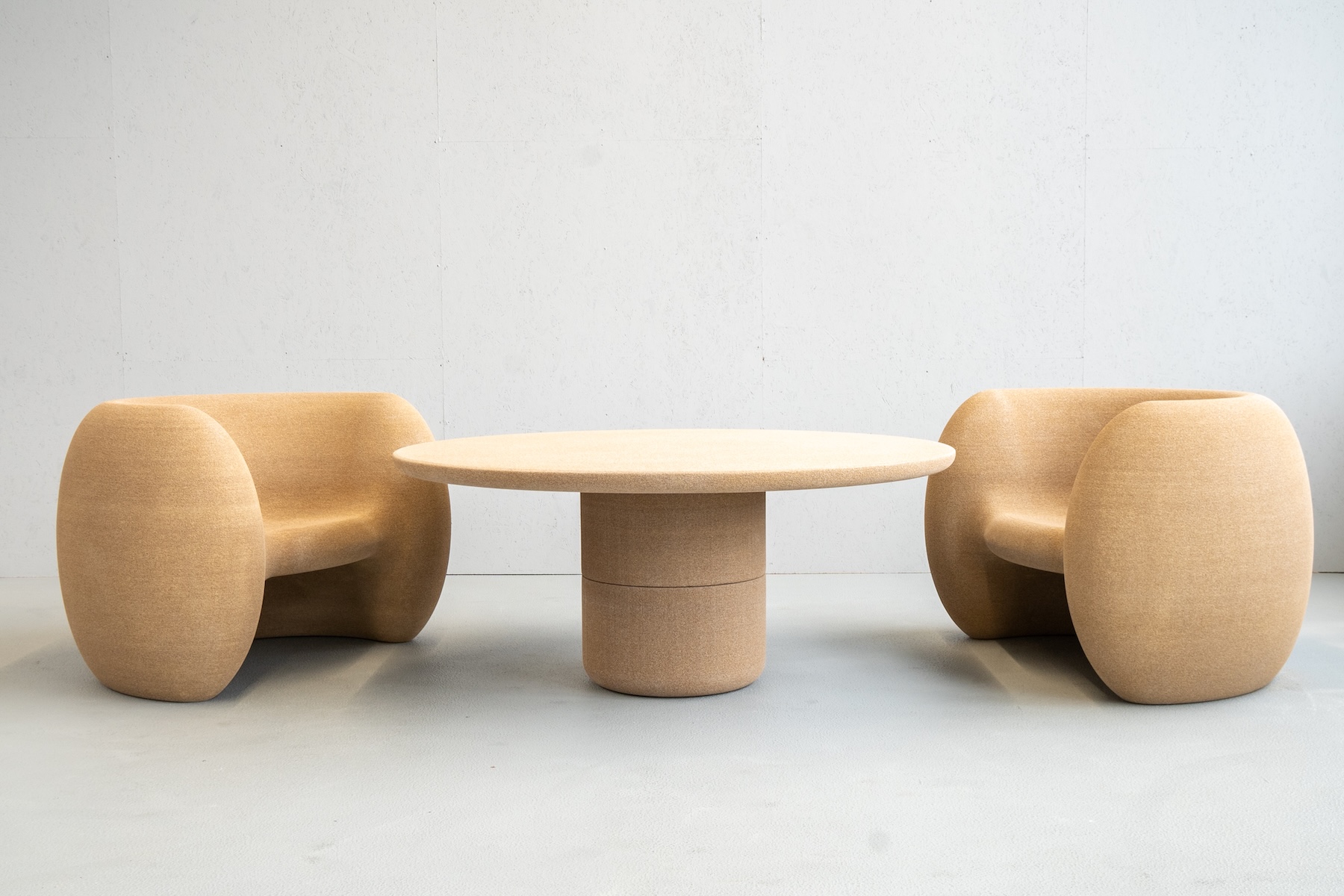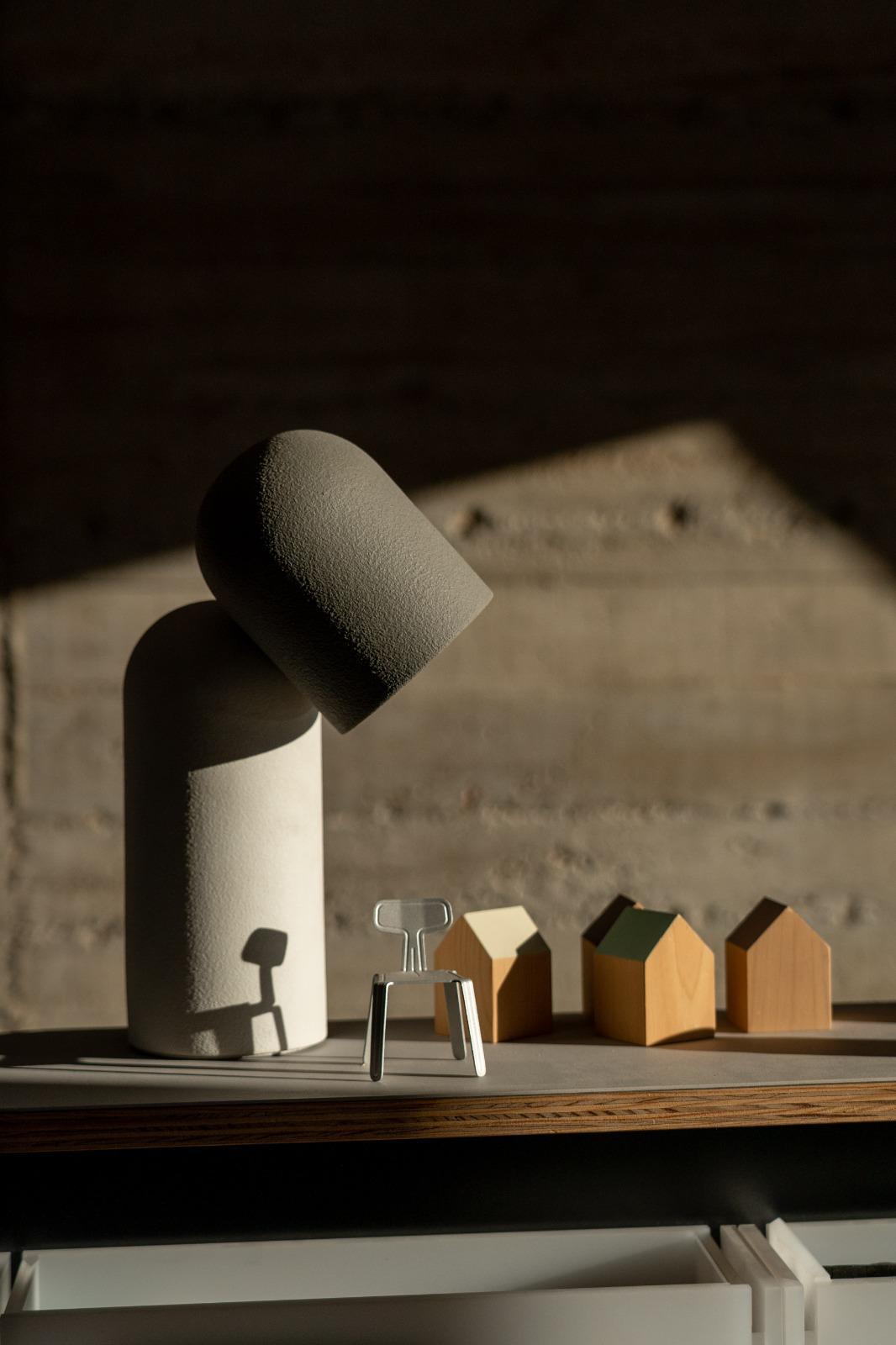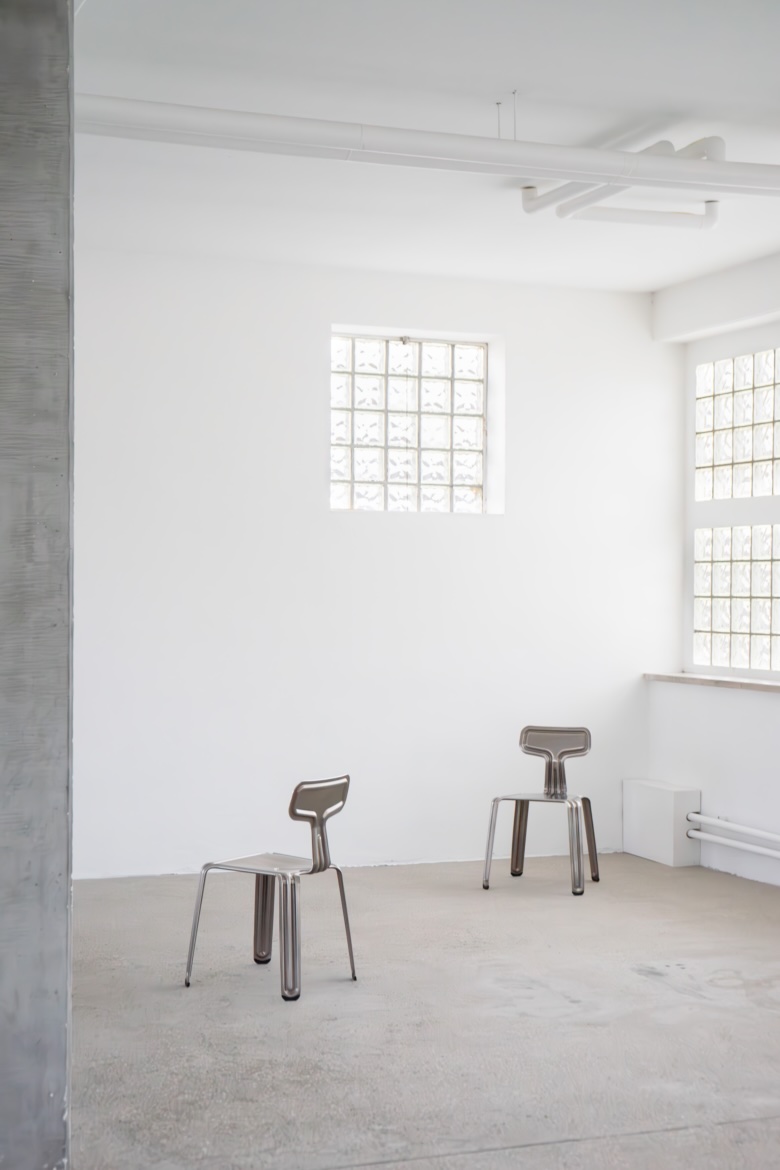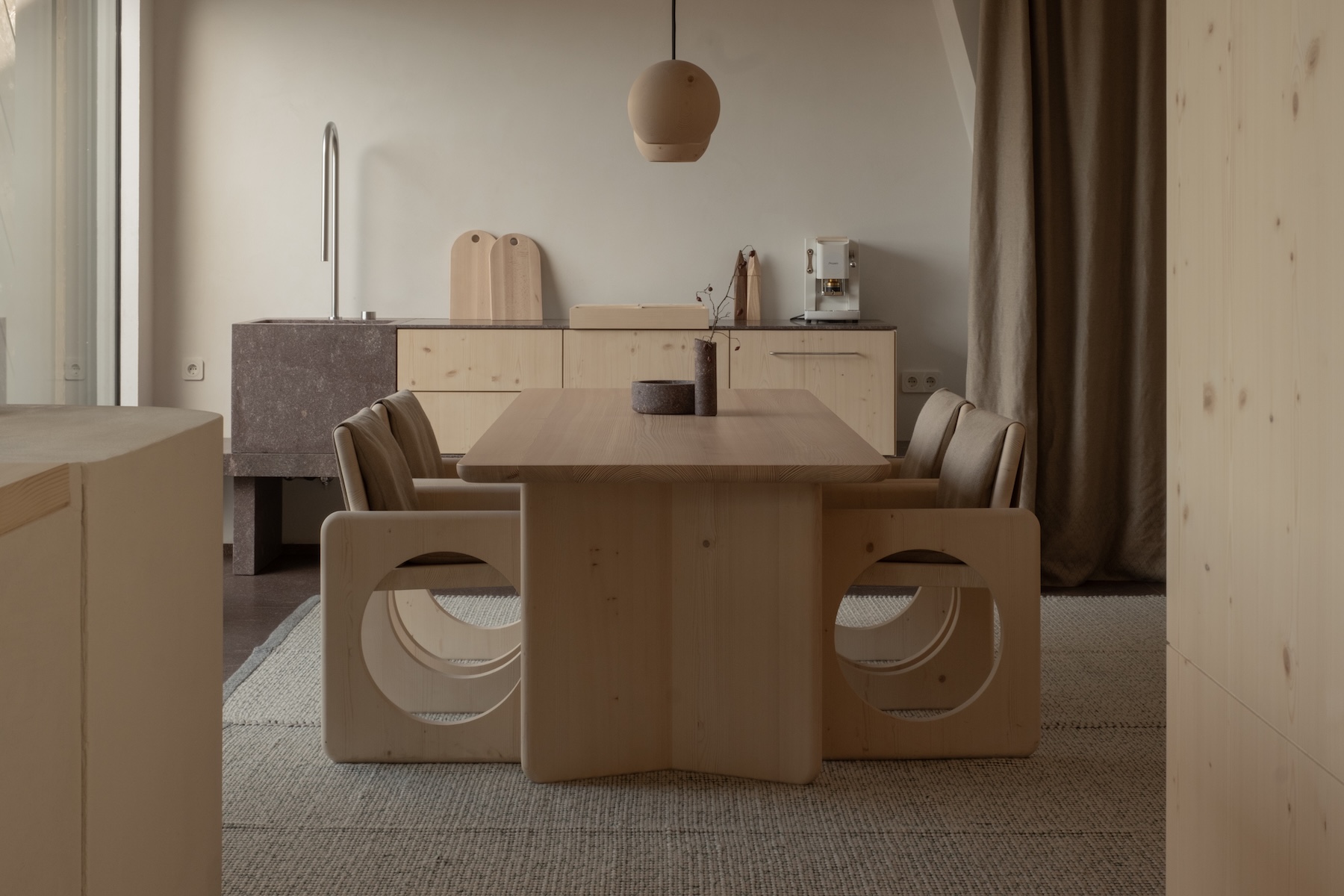JOIN the AFICIONADOS
Get the insider news and lowdown on what we've been up to, where we've been, and who we've met along the way. Be the first to discover new places and get the scoop on our favourites.
Harry Thaler has a knack for letting things be. Not unfinished, not raw for effect, but resolved in a way that feels unforced. Based in Merano in northern South Tyrol, the designer grew up in the foothills and now works from a converted concrete grain silo perched on the edge of the town. His studio is calm, brutal, useful. Like his work.
Trained first as a goldsmith, Thaler’s foundation in metalwork was never about preciousness. “I was fascinated from the start by the direct engagement with material,” he says. “The ability to form, refine and shape something with your hands. That training gave me a deep understanding of materiality, it left a mark.” Jewellery gave way to objects, and later to spatial design and architecture. After moving to London to study at the Royal College of Art, he earned his Master’s in Design Products in 2010. The Pressed Chair was born in that moment — a piece that set the tone for much of what followed.
The Pressed Chair is cut from a single 2.5 mm sheet of aluminium. No fixings, no joints, no waste. It’s light enough to lift with a finger, yet structurally sound. It does exactly what it needs to do, and that’s the point. From that same idea came the Pressed Bike, developed for Italian cycle company Leaos — an e-bike made of two aluminium shells, spot-welded together for strength and lightness. The result is sleek, sculptural and strong. Award-winning too, though you get the sense Thaler’s more interested in purpose than podiums.
He works across a wide range of materials, often returning to the ones that behave honestly. “Wood is alive. The smell, the warmth, the tactility, it creates a direct human connection.” That shows up in projects like Printed Nature, a furniture series developed with econitWoodand Additive Tectonics using 3D-printed sawmill waste. There’s also FUMI, a ceramic lamp formed from two magnetically coupled shapes. Simple, elegant, slightly off-centre. Thaler’s objects don’t demand attention. They invite it.
His furniture and lighting pieces sit quietly in places that reflect his sense of restraint. His work is part of the interiors at Bühelwirt, a minimalist mountain hotel in South Tyrol’s Ahrntal Valley. It also features at Hotel Miramonti, perched high above Merano, where Thaler helped realise Monti — a trio of timber cabins tucked into the forest, built with Tara Architects. Each element, from stair rail to sauna, was crafted with place in mind.
“The spaces we build carry memory,” Thaler says. “When you transform a structure instead of replacing it, you continue its story.” That belief is clear in the studio he created from an old silo. He kept the concrete walls exposed, added minimal layers and let function lead the way. The result is more than a workplace. It’s a place for pause.
And if he could design anything with no client, no budget and no brief? “A place of stillness,” he says. “Maybe in the mountains or near water. A space made of honest materials, open to the elements. Something that invites presence without demanding attention. Design as a frame, not a stage.”
It’s that kind of clarity that makes Harry Thaler one to watch. Not for what he’ll say next, but for what he’ll choose to leave unsaid.
